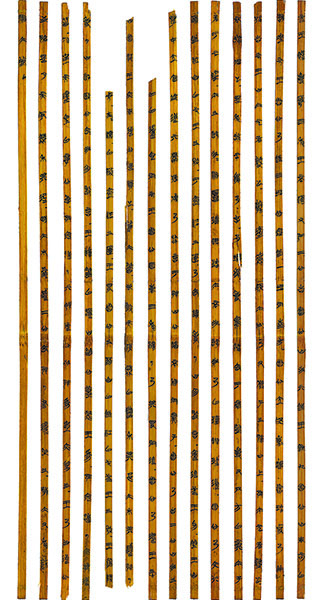

At a panel to discuss the authenticity of the bamboo strips in October 2008, experts concluded that: "The relics are an unprecedented major discovery and touch upon the core of traditional Chinese culture. It's bound to be valued by scholars from home and abroad and will exert a profound influence on subjects like history, archaeology, paleography and philology."
For over a decade, research into the manuscripts has enriched scholars' knowledge of ancient written characters, formats and materials used for bamboo strips, as well as the passing down of ancient documents, and advanced the study of the pre-Qin period, exemplified in one text providing a possible answer to the puzzle of where people of the Qin state originated.
Huang Dekuan, director of the Tsinghua center, where the manuscripts are preserved, says they have collated and restored more than half of the collection, sorting out pieces that belong to the same texts and arranging them in order to form a complete chapter.
During the process, the scholars have to comb the texts for clues ancient people left when compiling and arranging them, which inspires their study further.
Huang says the center is going to publish an 18-volume series called Collated Interpretations of the Tsinghua University Warring States Bamboo Manuscripts, the ordering of which forms the basis of the arrangement of manuscripts for the research and translation project led by Shaughnessy.